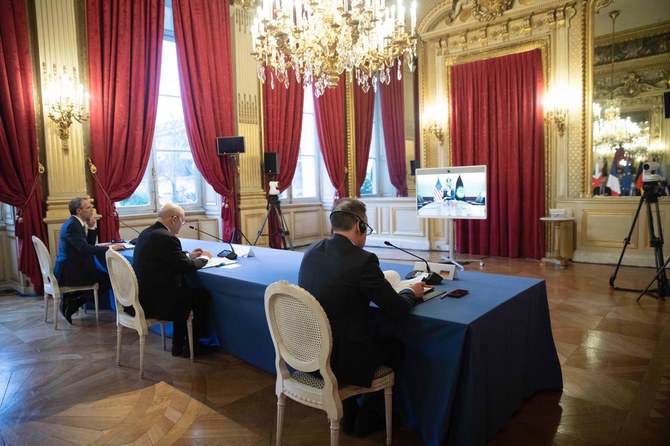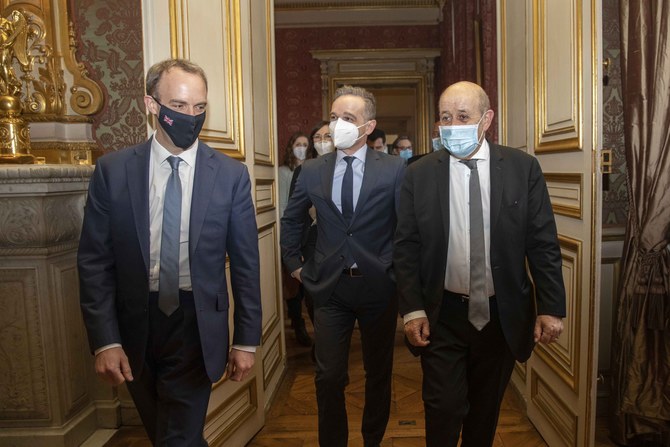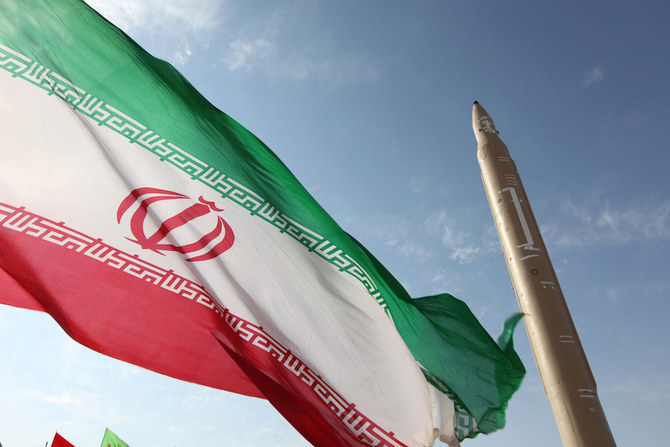CHICAGO: US Secretary of State Anthony Blinken and the foreign ministers of France, Germany and the UK on Thursday reaffirmed their determination to prevent Iran from developing a nuclear weapon, according to American officials.
Blinken said that if Iran returns to full compliance with the 2015 Joint Comprehensive Plan of Action (JCPOA), including a review of its activities by the International Atomic Energy Agency (IAEA), Washington will open discussions with the Iranian government.
He hosted a virtual meeting with the foreign ministers of the three European nations, sometimes referred to as the E3, during which they discussed Iran and the de-escalation of tensions in the Gulf, offered support for the efforts by UN Special Envoy for Yemen Martin Griffiths to end the war and address the humanitarian crisis in the country, denounced attacks targeting Saudi Arabia and Iraq, and condemned the military coup in Myanmar.
“They stressed in particular the urgency of ending the war in Yemen, while reaffirming their steadfast commitment to the security of their regional partners,” according to an official US statement.
“They expressed concern about the recent Houthi offensive against Marib and strikes against civilian infrastructure in Saudi Arabia, calling upon the Houthis and all Yemeni parties to engage constructively in the political process.”
The officials said that any return to the JCPOA, also known as the Iran nuclear deal, would require IAEA-supervised inspections to monitor and verify Iranian compliance with the terms of the 2015 agreement, from which former President Donald Trump withdrew the US in 2018.
“The E3 and the United States are united in underlining the dangerous nature of a decision to limit IAEA access, and urge Iran to consider the consequences of such grave action, particularly at this time of renewed diplomatic opportunity,” according to the statement.
“They reiterated their full support for the professional and impartial role of the IAEA and its director general, and their efforts to implement the necessary verification and monitoring of Iran’s nuclear commitments under the JCPOA.”
The officials said there is no “credible civil justification” for Iran to continue enriching uranium to 20 percent or produce uranium metal, a key step in the development of a nuclear weapon.
“The E3 welcomed the prospect of a US and Iranian return to compliance with the JCPOA,” the statement continued. “The E3 and the United States affirmed their determination to then strengthen the JCPOA and, together with regional parties and the wider international community, address broader security concerns related to Iran’s missile programs and regional activities. We are committed to working together toward these goals.
“The ministers also called on Iran to release all our arbitrarily detained nationals and reunite them with their families. They also expressed deep concern about the continuing grave human-rights violations in Iran.”
The officials urged military leaders in Myanmar to “immediately end the state of emergency, restore power to the democratically elected government, refrain from violence, release all those unjustly detained, and respect human rights and the rule of law.”
Myanmar’s democratically elected government was removed from power by a military coup on Feb. 1.




























